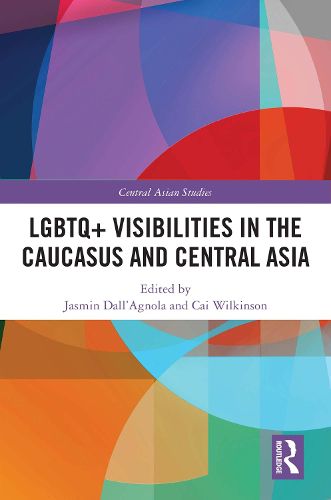Readings Newsletter
Become a Readings Member to make your shopping experience even easier.
Sign in or sign up for free!
You’re not far away from qualifying for FREE standard shipping within Australia
You’ve qualified for FREE standard shipping within Australia
The cart is loading…






This book discusses the ongoing challenges of queer visibilities, activism, and knowledge production and demonstrates that there are lessons to be learned from the experiences of queer people in the Caucasus and Central Asia. The idea for this book emerged from a desire to showcase queer scholarship in and on the region, following a panel discussion about the visibility of queer communities in the post-Soviet space at the ASEEES virtual convention in December 2021. The contributions in this book explore questions, including but not limited to: Under what circumstances and conditions does the Internet play a polarizing or liberalizing role in relation to sexual and gender diversities? What accounts for the divergent trajectories of LGBTQ+ rights recognition in different states and regions of the world? How is expanding access to the Internet and persistent government censorship and queerphobia changing LGBTQ+ identities, visibilities, and activism? Via their engagements with the questions outlined above, this book amply demonstrates not just the relevance of scholarship about LGBTQ+ communities and activism for both area studies and queer studies but the ongoing need to interrogate existing political economies of knowledge production. The chapters in this book were originally published in Central Asian Survey and are accompanied by a new Foreword, an updated Introduction, an Epilogue, and an Afterword.
$9.00 standard shipping within Australia
FREE standard shipping within Australia for orders over $100.00
Express & International shipping calculated at checkout
This book discusses the ongoing challenges of queer visibilities, activism, and knowledge production and demonstrates that there are lessons to be learned from the experiences of queer people in the Caucasus and Central Asia. The idea for this book emerged from a desire to showcase queer scholarship in and on the region, following a panel discussion about the visibility of queer communities in the post-Soviet space at the ASEEES virtual convention in December 2021. The contributions in this book explore questions, including but not limited to: Under what circumstances and conditions does the Internet play a polarizing or liberalizing role in relation to sexual and gender diversities? What accounts for the divergent trajectories of LGBTQ+ rights recognition in different states and regions of the world? How is expanding access to the Internet and persistent government censorship and queerphobia changing LGBTQ+ identities, visibilities, and activism? Via their engagements with the questions outlined above, this book amply demonstrates not just the relevance of scholarship about LGBTQ+ communities and activism for both area studies and queer studies but the ongoing need to interrogate existing political economies of knowledge production. The chapters in this book were originally published in Central Asian Survey and are accompanied by a new Foreword, an updated Introduction, an Epilogue, and an Afterword.